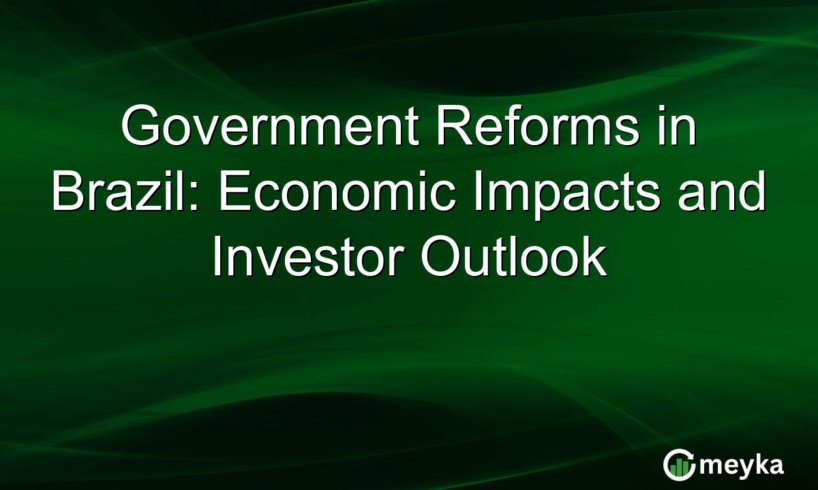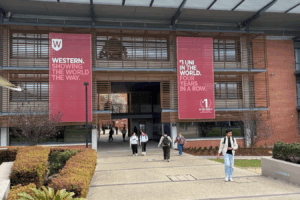
Brazil’s economic reforms are catching global attention as the government implements substantial policy changes aimed at economic recovery. With measures targeting structural adjustments and fiscal discipline, these reforms could significantly influence Brazil’s economic landscape. International investors, eyeing emerging markets for growth opportunities, are particularly interested in these developments. Understanding the implications of these reforms on Brazil’s economic future is crucial for stakeholders worldwide.
Overview of Brazil’s Economic Reforms
Brazil’s government has launched reforms focusing on fiscal responsibility, tax restructuring, and privatization. Key changes include a fiscal reform to reduce public sector debt and introduce a simplified tax system to encourage entrepreneurship and foreign investment. The government is also promoting privatization of state-owned enterprises to enhance efficiency. This multifaceted approach aims to stabilize the economy and attract sustained foreign investment.
Economist reports suggest that Brazil’s GDP could see a rise of up to 3% by 2026 if these reforms are implemented effectively. Changes in tax structures and reduced bureaucratic hurdles are expected to boost business activities. Investors are closely monitoring these developments as they could signal substantial growth in Brazil’s market potential.
Impact on Brazil’s Economy
The economic reforms in Brazil are designed to build a sustainable growth path. By addressing structural issues and increasing market competitiveness, the reforms are expected to lower unemployment rates and stabilize inflation. Brazil’s Finance Ministry predicts a decrease in the fiscal deficit to 5% of GDP by 2025, compared to 8% in recent years, suggesting a healthier economic outlook.
As Brazil improves its business environment, sectors such as technology, agriculture, and manufacturing are expected to thrive. The reduction in interest rates, due to better monetary policies, could further stimulate domestic investments, thereby expanding Brazil’s productive capacity. This bolsters investor confidence as the likelihood of profitable returns increases. More insights on these developments can be found on The Guardian.
Investor Sentiment and Market Outlook
The investor outlook on Brazil is cautiously optimistic. Emerging market investors are finding Brazil’s reforms enticing due to the potential for high returns in a reforming economic environment. Analysts note that diversification into Brazilian assets could hedge against risks in more mature markets.
Recent sentiment surveys indicate that while there is optimism, investors remain vigilant about political stability and the government’s ability to uphold these reforms. An increase in foreign direct investments is observed, signaling growing confidence. However, cautious observation persists amidst global economic uncertainties. Discussions on platforms such as Reddit highlight mixed opinions, with some praising the growth potential while others remain wary about long-term stability.
Affect on Emerging Markets
Reforms in Brazil could serve as a blueprint for other emerging markets aiming for economic stabilization and growth. Brazil’s strategic focus on privatization and fiscal responsibility may encourage similar markets to undertake comparable measures. This could lead to a broader trend of reform-driven growth in emerging economies.
As Brazil positions itself as a more attractive investment destination, the ripple effect could enhance the competitiveness of emerging markets globally. Potential collaborations and partnerships between Brazil and other countries could foster a new wave of economic alliances, driving shared prosperity and innovation. Investors keen on diversifying portfolios find such interlinked growth stories appealing.
Final Thoughts
Brazil’s economic reforms present a significant opportunity for international investors looking toward emerging markets. By focusing on comprehensive fiscal and structural adjustments, Brazil seeks to create a stable and growth-oriented economic environment. While uncertainties remain regarding the political framework and the pace of reform implementation, the foundational changes are promising.
Investors need to stay informed about the ongoing developments and potential risks. The next few years will be pivotal in determining Brazil’s economic trajectory and the broader implications for global emerging markets. As Brazil continues to implement these reforms, the country could emerge as a leading example of economic resilience and opportunity.
FAQs
What are the main components of Brazil’s economic reforms?
Brazil’s economic reforms focus on fiscal stability, tax restructuring, and privatization. These include reducing public sector debt, simplifying the tax system to encourage investment, and privatizing state enterprises for efficiency. These changes are meant to stabilize the economy and attract new
How could these reforms impact the Brazilian economy?
The reforms aim to stabilize and grow the economy by lowering unemployment rates and reducing the fiscal deficit. Brazil’s Finance Ministry projects a decrease in the fiscal deficit to 5% of GDP by 2025. This could enhance economic growth and investor confidence.
What is the investor outlook for Brazil in light of these reforms?
Investors view Brazil’s reforms with cautious optimism. There’s potential for high returns due to growth opportunities. Surveys indicate confidence in the reforms but highlight concerns about political stability as a risk factor.
How do Brazil’s reforms affect other emerging markets?
Brazil’s reforms could set a precedent for other emerging markets, promoting similar changes. This may increase competitiveness, attract investment, and lead to economic partnerships that drive growth across emerging economies.
Are there risks associated with investing in Brazil currently?
While Brazil’s reforms are promising, investors need to be aware of risks such as political instability and global economic uncertainties. Continuous observation and strategic diversification can mitigate these risks.
Disclaimer:
This is for information only, not financial advice. Always do your research.





